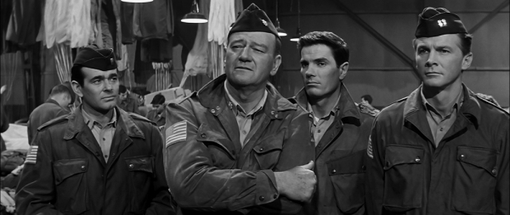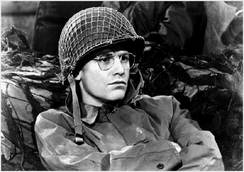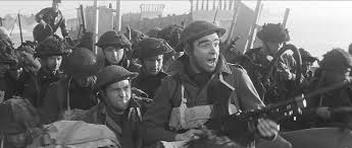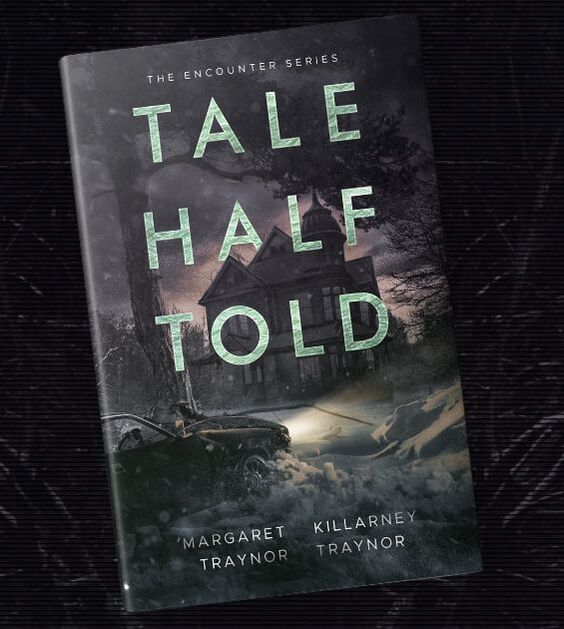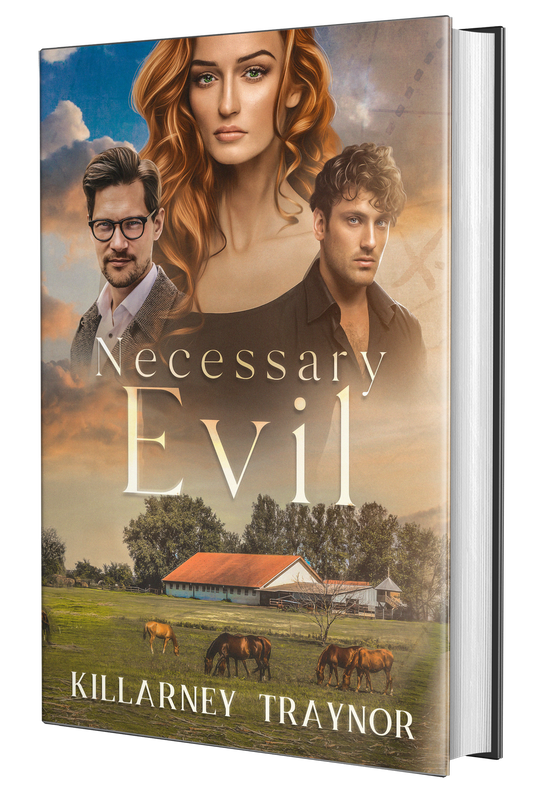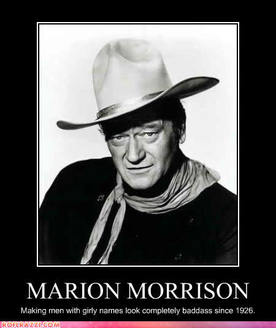 I'm a huge John Wayne fan. It's no secret, really. I was introduced to his movies as a child and to this day, in a pinch, I still find myself thinking, What would the Duke do? (That is, when I'm not thinking, What would Maureen O'Hara do? I'm an old-fashioned kind of girl, I guess.) Anyway, I'm a fan, but I'm embarrassed to say that it was only last summer that I saw Big Jake and realized just how many of his films I still hadn't seen. Hence, my sort-of-unofficial New Years Resolution is to remedy this: specifically, to see all the movies he made after Stagecoach, his breakthrough role. And since my other sort-of-unofficial resolution was to focus on more variety and interesting blog posts, I've decided to share my review of these adventures - which should prove to be interesting, because, as much as I love John Wayne, I'll be the first to admit that when he makes a bad movie, it really reeks. (See - or rather, avoid at all costs - Donovan's Reef.) Sit back, enjoy, and, if you disagree with my analysis of these cinematic classics or stinkers, be sure to comment below! First up, The Longest Day: 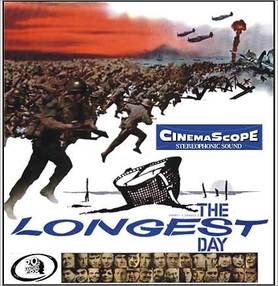 Released 1962 by 20th Century Fox Starring: John Wayne, Robert Mitchum, Eddie Albert, Robert Wagner, Sean Connery, Red Buttons, Richard Burton, Roddy McDowell, ad infinitum... Directed by Ken Annakin, Andrew Marton, Berhard Wicki, Gerd Oswald, and Darryl F. Zanuck Brief Synopsis: A sprawling epic about the events of D-Day, told from both the Allied and the Axis points of view. Review: This movie dances on the line between entertainment and docudrama, keeping it's eye strictly on the goal, which is to tell, in a respectful way, the story of the Normandy invasion. It's big, it's ambitious, and it covers lots of ground, from the frustration of the German high command, who cannot get permission to move, to the terror of the allied ground troop, some lost, some wounded, all terribly out-gunned. The scope is really awesome and the direction is terrific, especially the air shots: a devastating strafing scene in one instance, a losing battle in another. Its a thorough (though I'm told not wholly accurate) portrayal of a land under siege. Some reviewers found the all-star cast a distraction and they have a point. But in a movie like this, dealing with so many POVs and characters, knowing the actors had the merit of making me invest in the action. Young Robert Wagner, for instance, was too new a name and might not survive scaling the cliff. When Private John Steele is caught on Ste. Marie Eglise bell tower, I was concerned because I liked Red Buttons. The familiar faces made the soldiers feel more like what they would have been in actuality: men and boys that you knew, in varying ways, from back home. John Wayne isn't in this much (by necessity, as the cast is so huge), but he makes the most of his time on screen. He's at his most macho-American, playing a paratrooper who's crew is dropped 5 miles away from the target area and refuses to let neither the distance, not his freshly broken ankle stop him from getting to his appointed place. He rough, tough, gruff, and demanding - and almost broken when he comes upon the massacre (exaggerated for this movie) at Ste. Marie Eglise. Robert Mitchum nearly steals the movie as Brig. General Cota, who, pinned down on one of the beaches, makes an impassioned rallying speech that made me want to throw up my hat and cheer. But this movie doesn't often resort to cheap macho calls or flag-waving simplicity: it's largely the story of determined men, fighting over occupied territory. The storytellers want to arouse your sympathy, not for the Americans or even the allies, but for the men, the individuals on both sides, who fought and died that day. (This being said, the Germans were portrayed far less sympathetically than the allies - this was definitely a movie made by the winning side.) Two odd casting choices stand-out: Roddy McDowell (who I love and is the only reason I watched Cleopatra) plays an unconvincing GI, reminiscing about his life back home with his father in America. His accent is just a little to European to pull it off. More startling is the casting of pre-Bond Sean Connery as a comic-relief Irishman. I had to laugh when he, barely disguising his Scottish bur, makes a condescending remark about bagpipes. The Longest Day will not go down as my favorite Duke movie (Rio Bravo and McLintock! vie for that honor), and it doesn't tell you anything new about World War II or it's participants, but it's a well-spent 3 hours.
Agree? Disagree? Let me know down below!
0 Comments
Your comment will be posted after it is approved.
Leave a Reply. |
The BlogWelcome to Categories
All
|
Copyright © Killarney Traynor
All Rights Reserved.
No part of this website may be reproduced without
the Owner's express consent. [Backlinks allowed.]
All Rights Reserved.
No part of this website may be reproduced without
the Owner's express consent. [Backlinks allowed.]

